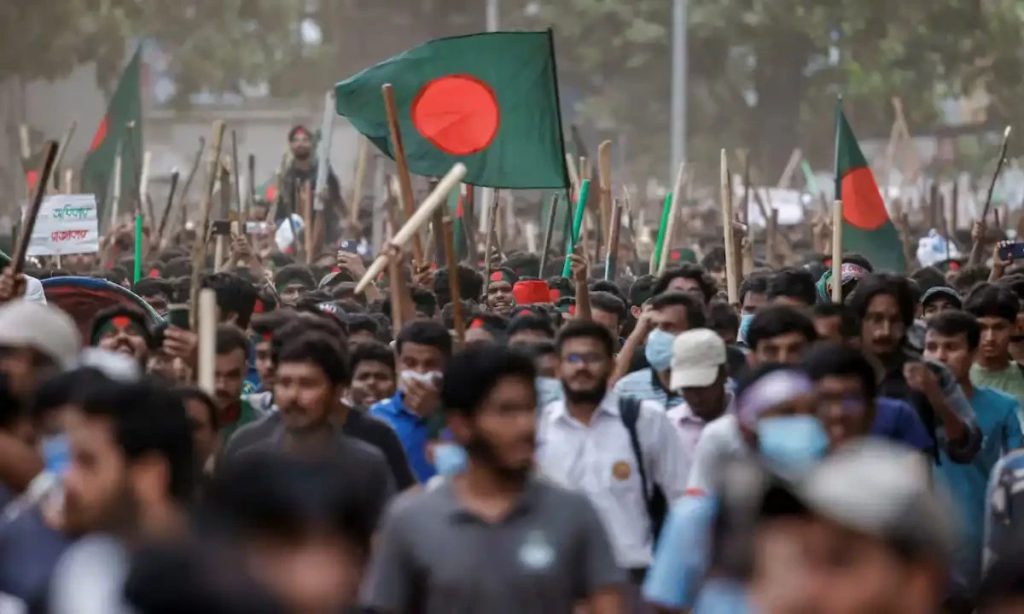Bangladesh witnessed violent clashes between student protesters, ruling party supporters, and police amid escalating tensions over government job quotas, exacerbated by economic challenges and limited opportunities for the future.
Prime Minister Sheikh Hasina addressed the nation on Wednesday evening, condemning the deadly unrest triggered by protests against the reinstatement of quotas for civil service positions. The clashes resulted in casualties across various cities, prompting a judicial inquiry promised by Hasina to hold those accountable.
Following the clashes, educational institutions nationwide were instructed to close indefinitely, and paramilitary forces were deployed to maintain order. Mobile internet services were also suspended amidst the unrest.
Protesters like Nusrat Tabassum expressed frustration, alleging attacks by members of the ruling party’s student wing during what they described as peaceful demonstrations for quota system reforms.
The quota system, initially abolished in 2018 after extensive student protests, reserves over half of government jobs for specific groups, including veterans’ families from Bangladesh’s 1971 liberation war and others. Supporters argue it promotes social equity, while critics, including protesting students, advocate for a merit-based approach, claiming the system hinders fair access to coveted civil service positions.
Despite calls for dialogue and pending Supreme Court decisions, tensions persist as demonstrators demand immediate quota reforms amidst economic uncertainties and perceived inequalities in job opportunities.


